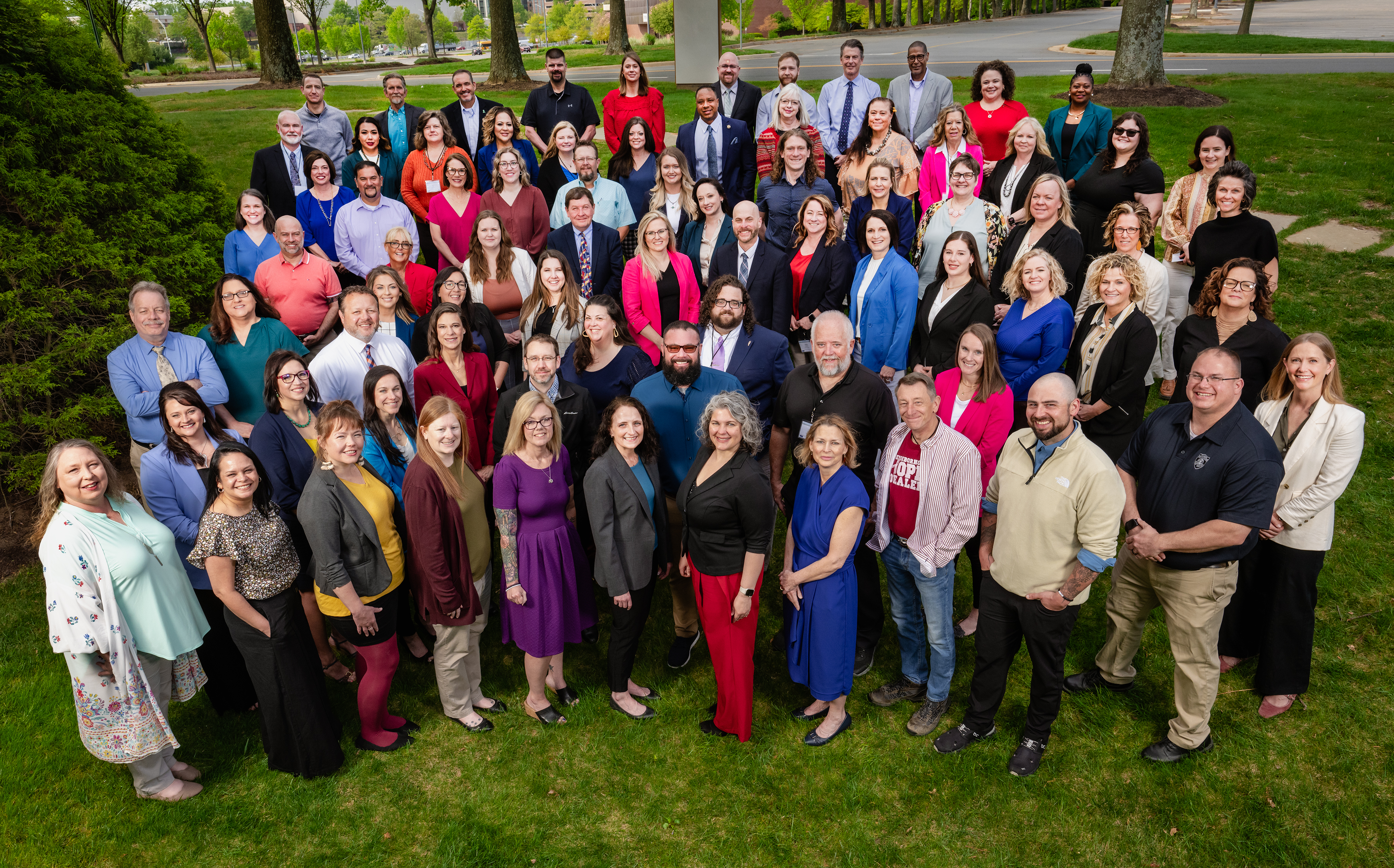The Reaching Rural Initiative was designed to provide support to rural communities, which face unique challenges in confronting the substance use crisis. From the obvious obstacles (a lack of counseling, mental health and health care services/facilities), to the more covert (inconsistent internet access, few or no public transportation options, long distances to reach resources) the tapestry of rural life can weave a difficult web for those needing help.
With the intention of helping fill these gaps, the Bureau of Justice Assistance allocated funds from its Comprehensive Opioid, Stimulant, and Substance Use Program to launch Reaching Rural in 2022. The year-long fellowship program brings together rural practitioners from across the country with diverse professional backgrounds and supports them as they grow as leaders, gain new tools from skill workshops and network with peers navigating similar challenges.
Inspiring hope in Minnesota
As a result of Reaching Rural, communities across rural America are putting new plans in action that help those most in need. In western Minnesota, a judicial system processing a high number of drug offenses struggles to move individuals, who may need specialized support, through the system efficiently.
“Because we’re small, we have a judge, we have a prosecutor… and a couple public defenders that are part time,” said Midge Christianson, Director of 6W Community Corrections, a four-county joint powers agency providing probation and supervised release services in Western Minnesota that is participating in Reaching Rural. “And so, the justice system moves slowly in our area.”
The local jail also has no social worker or assessor, so there aren’t immediately available support services in place for those who are confined. Christianson said when people with substance use challenges move through this time-consuming judicial process without access to assessment and treatment services, their issues often become more pervasive.
That’s why Christianson – and other local leaders in public health, law enforcement and city administration – came together, and with the help of Reaching Rural, formed a plan. Their team came up with the idea of hiring a rural recovery assistant, a new position that will arrange expedited substance use disorder and mental health assessments for people booked into the jail or charged with a criminal complaint. The recovery assistant will provide case management and recovery support after sentencing and help connect people to community-based services like housing assistance, peer support and sobriety meetings.
Reaching Rural connected Christianson and her team with a grant through the Bureau of Justice Assistance that offered the expertise of a free consultant to help design the program and put the plan in action. Christianson and her local Reaching Rural cohort also conducted a community listening session, seeking feedback on what resources people needed most.
People were eager to share their experiences and ideas. The listening session will be a springboard for future plans, including how to address a lack of sober living accommodations.
“One of the other things we heard very strongly was what I will call a general, collective desire to connect to your community,” Christianson said.
Reaching Rural is helping forge those critical connections.
Expanding crisis services in Virginia
1,400 miles to the southeast in Central Virginia, Denise Waff is the Director of pretrial services and the probation department for the city of Hopewell and counties of Prince George and Surry. She said the rural nature of much of her area means residents often must travel long distances for health, counseling and substance use services.
Waff is an individual fellow with Reaching Rural and used her experience to plan for the establishment of a Crisis Receiving Center that would provide immediate access to behavioral health crisis services and connect people to long-term mental health and substance use supports. The hope is to access funds from the opioid abatement settlements to lease space and run the Center.
“This would be a place where an individual could go if they are in crisis, or a family member or police officer could bring someone in crisis,” Waff said. “The goal is that we’re reducing the burden on police having to handle the situation. We’re reducing the burden on emergency rooms having to handle mental health crises. Let them get back to handling other medical health crises.”
The hope is also to purchase a vehicle to support transportation of those traveling to and from the Center. Waff said her experience with Reaching Rural gave her new insights for serving her own community.
“It was an awesome way to make connections,” Waff said, adding that she had the opportunity to visit other rural communities across the country and see their ideas and challenges. “All of us rural communities, although different, are dealing with similar issues. … It was eye opening and inspiring.”
The Reaching Rural Initiative is co-sponsored by the Bureau of Justice Assistance, the Centers for Disease Control and Prevention, and the State Justice Institute. Fellows are selected through a competitive application process and participate either as part of a cross-sector team from their community or as individuals.



